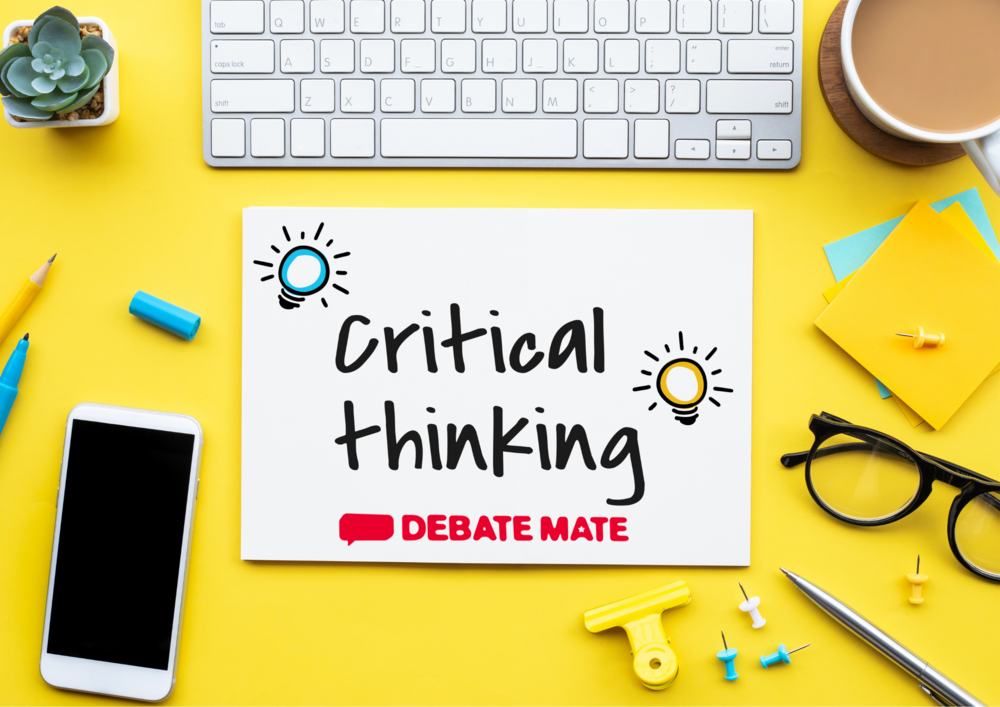Read on to learn exactly why this skill is so valuable in our 21st Century world and crucially, how Debate Mate fosters the critical thinkers of the future!
According to Oxford English Dictionary, critical thinking is defined as...
"the objective analysis and evaluation of an issue in order to form a judgement."
In the fast-paced 21st Century world we live in, the ability to analyse and evaluate information quickly and accurately is more important than ever!
Critical thinking allows you to...
-
Develop independence of thought 💭- if you're able to think critically, you're more likely to think for yourself and have confidence in your own convictions.
-
Question and challenge the status quo 💬- If you have confidence in your own convictions, you're more likely to stand up for what you believe in and constructively challenge those who disagree with you.
-
Solve problems creatively 🧠- Critical thinking fosters a creative approach to problem-solving that is hugely valuable in helping us solve big 21st Century problems like climate change and poverty.
-
Become more employable! 📈- For all the reasons above, employers are desperate to hire creative critical thinkers!
Ultimately, in a world of soundbites, fake news and information overload, taking a critical approach to everything you hear and see, rather than taking things at face value, is a hugely sought-after skill!
Luckily, debating is the perfect methodology to develop critical thinking skills!
Here's how...
Argument Generation:
As students progress through our Fundamentals of Debating pathway and become more experienced, they're encouraged to approach argument generation more strategically. Rather than just thinking of the most obvious arguments, they're instead taught to brainstorm as many ideas as they can using two argument generation techniques. These are...
-
Stakeholder analysis- Students consider the people or groups that have something to lose or gain from the outcome of the debate. They use their interests to shape more nuanced and creative arguments.
-
PERMS- This acronym stands for Political, Economic/Environmental, Religious/Racial, Moral, Social. It can help students view the debate through different lenses and shape more thoughtful and imaginative arguments.
Students should then critically analyse the arguments they've come up with to prioritise their strongest points!
Critically Responding To The Arguments Of Others:
Right from the beginning, students on our courses are taught how to strategically respond to the arguments of others using 2 debating techniques:
-
Rebuttal- This is delivered at the beginning of a student's speech before they deliver their own argument. Using the structure 'You said... But I disagree because... Therefore...' students are able to critically challenge a part of the preceding speaker's debating speech.
-
Points of Information- This is an opportunity for students to interrupt a speaker on the opposing side with a short interjection, usually posed as a question, that challenges the argument they're making.
Both of these techniques require students to actively listen to information being presented to them, critically analyse it for flaws, and then respond to it in a constructive way.
🚀 At Debate Mate, we believe that critical thinking is a hugely valuable skill instrumental in helping your child realise their full potential. Invest in their future NOW by signing them up to our courses- check them out
here!
🚨 Want to try before you buy? Click
here to sign your child up for a FREE taster session running in the new year.
